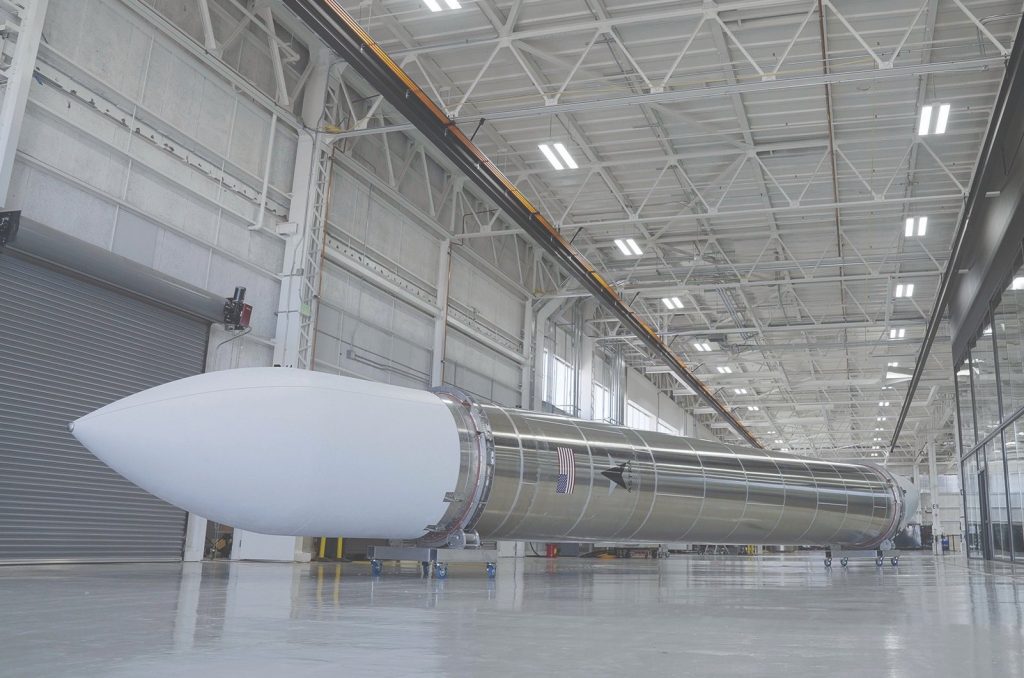Spacecraft propulsion and launch vehicle company Astra Space thought about filing for bankruptcy multiple times recently because it had difficulty raising money.
The company, which announced plans March 7 to go private in a deal with the company’s founders, released a delayed Form 10-K annual report with the U.S. Securities and Exchange Commission April 18.
In the filing, Astra reported nearly $3.9 million in revenue for 2023 and a net loss of $178.4 million. The company had $9.4 million in revenue in 2022 and a net loss of $411.4 million.
The company’s 2023 revenue came exclusively from its space products unit, which produces electric propulsion systems called Astra Spacecraft Engines. The company, which shelved its Rocket 3 small launch vehicle in 2022, reported no launch revenue in 2023.
In the filing, the company disclosed that it had produced 34 Astra Spacecraft Engines to date for eight customers, with 10 of those thrusters on spacecraft now in orbit. “We continue to attempt to scale production of our Astra Spacecraft Engines but have incurred program delays and resource constraints,” the company stated in the filing.
In the Form 10-K filing and other documents, the company revealed that it has come close several times in recent months to filing for bankruptcy. “At various points during the second half of 2023 and thus far in 2024, the Company has considered and even begun preparations to file for voluntary relief under either Chapter 11 or Chapter 7 of the Bankruptcy Code because the Company faced an inability to fund its ongoing operations,” it stated. A Chapter 11 filing would allow the company to continue operations and reorganize, while a Chapter 7 filing would result in liquidation of the company.
An April 8 filing with the SEC, describing its plans to go private, provided more details about those bankruptcy considerations. That included a Nov. 3 meeting of a special committee of the company’s board that “considered whether it should recommend immediately furloughing all employees and prepare for an emergency bankruptcy filing,” instructing company management to make those preparations while it worked to line up additional financing, which it did a few days later.
Astra continued consideration of a potential bankruptcy filing after the company’s founders, Chris Kemp and Adam London, submitted a proposal Nov. 8 to take the company private at an original price of $1.50 per share. By mid-January, the company’s board decided to simultaneously plan for a Chapter 7 bankruptcy filing while negotiating a deal to take the company private since Astra “was in dire need of cash.”
The board again considered a bankruptcy filing at a Feb. 22 meeting, where management recommended furloughing employees other than those needed with bankruptcy planning no later than Feb. 26 as the board engaged a law firm to prepare for a Chapter 7 filing. Around that time, Kemp and London submitted a revised, far lower offer to take the company private while also offering $300,000 “in order to avert an immediate furlough of the Company’s employees.”
The committee of the board was told at a meeting on March 5 that if the company didn't accept the revised offer and the temporary funding that came with it, all of Astra’s remaining money would be used the next day to cover payroll and insurance costs and to prepare for a Chapter 7 filing. The decision to go private was approved and announced on March 7.
The board decided to approve the deal because it believed it had nothing to lose, as the only other option was to file for Chapter 7 bankruptcy. This was stated in filings: “choosing to go through with the Revised Take Private Proposal – even if it didn't end up happening – was better than immediately filing for Chapter 7 Liquidation.”
The deal has not been finalized yet. When the announcement was made, Astra said it thought the deal would be finished and the company would become private in the second quarter, and the most recent SEC filings did not change that timeline.
The filing on April 8 included forecasts about the company’s future finances that were made in February. It predicted almost $5 million in revenue for the first quarter of 2024, with revenues peaking at $22.4 million in the second quarter of 2025. The forecasts also assumed that the company would start launches again in 2025, with one launch every quarter.
However, Riveron, the company hired by Astra to help with its assessment of different funding options, dismissed those forecasts as “optimistic and unlikely to be achieved,” according to the SEC filing. These forecasts included assumptions such as raising $90 million in the first quarter of 2024. According to its 10-K filing, the company has raised $13.9 million since the end of December.









